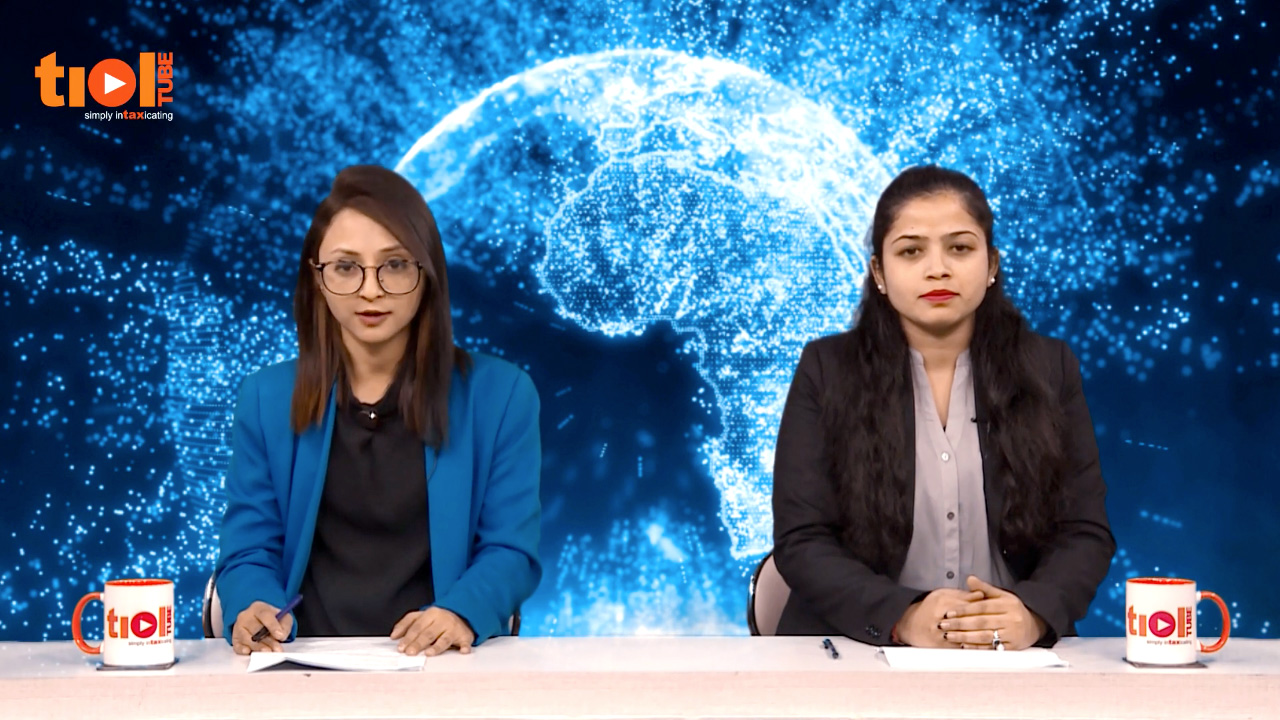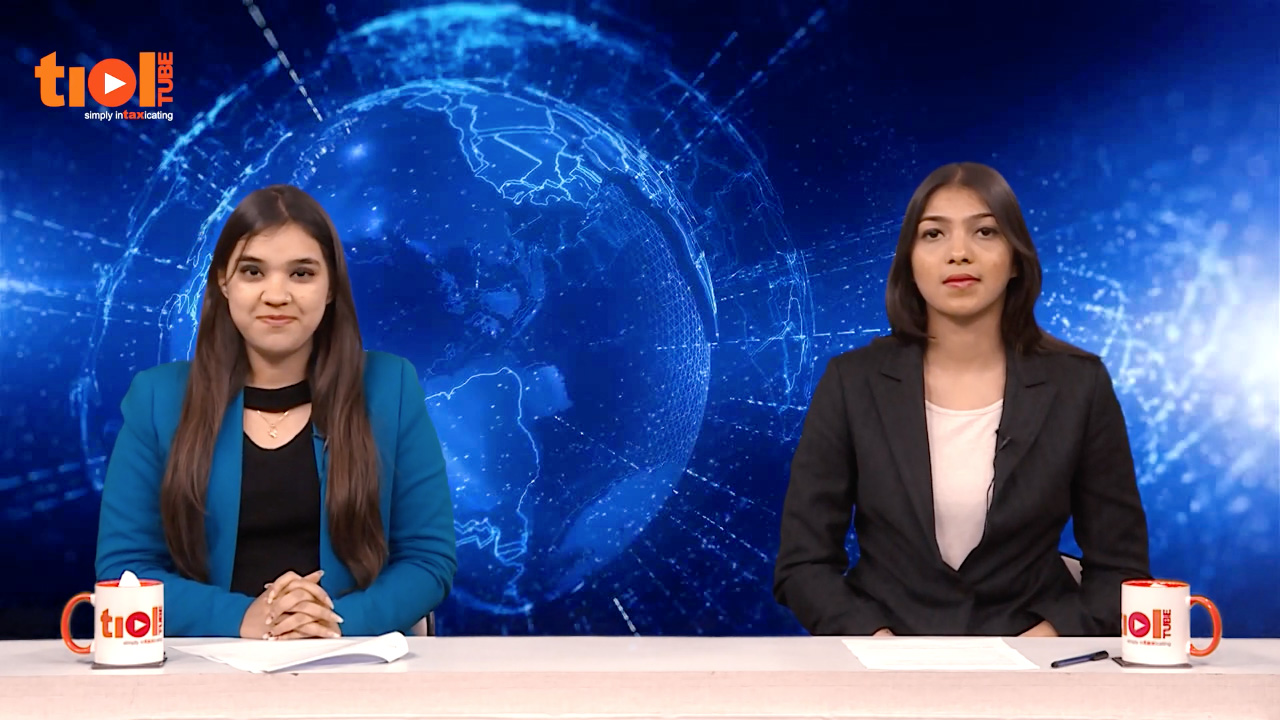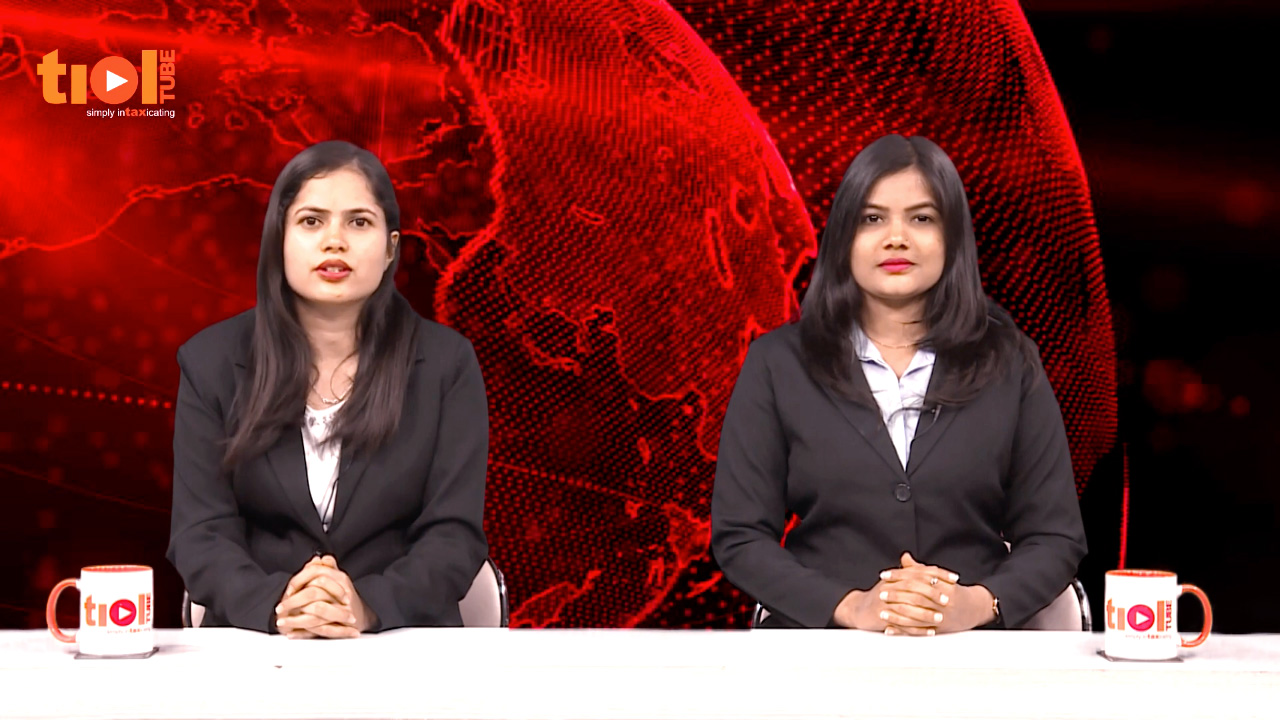|
SERVICE TAX
2020-TIOL-54-CESTAT-HYD
Oren Hydrocarbons Pvt Ltd Vs CC, CE & ST
ST - The assessee is a manufacturer of Barite powder - They receive the raw material, crush it into powder and transport it to their Chennai unit from where it is exported - During investigation, it was found that the assessee was not discharging service tax under reverse charge mechanism on GTA services which they have availed for transporting the goods - The assessee prayed for benefit of exemption notfn 34/2004 which was not allowed to them - They further contended that the benefit of exemption notfn 41/2007-ST which was available to services used for export of goods was also not given to them - Thirdly, they contested the invocation of extended period of limitation - As far as the first issue is concerned, this exemption is available only in cases where the gross amount charged for consignments transported in goods carriage does not exceed Rs.1,500/- or gross amount on individual consignment transported in goods carriage does not exceed Rs.750/- - This notification was interpreted in case of Bellary Iron & Ores Pvt Ltd - 2010-TIOL-704-CESTAT-BANG - Tribunal concur with the views expressed by Tribunal that this exemption is available only when the aforesaid two conditions are met - There is nothing on record to show that either of these two conditions has been met in the present case - Coming to the second issue of exemption notfn 41/2007-ST, this notification exempts services which are used for export of goods - GTA services were availed for transporting goods from their Kodur unit to Chennai - Thereafter, the Chennai unit in turn exported the goods - While this transportation may be in relation to export of goods, there is no sufficient evidence to show that this transportation is actually for export of goods - Secondly, the exemption notification does not provide the exemption straightaway but is subject to certain conditions and available by way of refund of service tax paid on the specified services used for export of goods - This does not automatically allow the assessee to NOT pay service tax which they were liable to pay - For this reason, no force found in the argument of the assessee that they are entitled to the benefit of this exemption notification - As regards to invocation of extended period of limitation, assessee was fully aware of their liability to pay service tax on GTA services and had indeed obtained registration for the same services received in their Chennai unit but had not done so, in respect of Kodur unit - Therefore, assessee cannot plead ignorance about their liability to pay service tax and take registration and follow the appropriate procedures - The extended period of limitation has been correctly invoked - The impugned order is correct and calls for no interference: CESTAT
- Appeal rejected: HYDERBAD CESTAT
2020-TIOL-52-CESTAT-CHD
Verma Brothers Vs CCE & ST
ST - Appellant is engaged in Construction Service and the refund claim filed is with regard to Construction Service provided to the Government for building of MES - The said service was exempted from service tax vide entry number 12(a) of Mega Exemption Notification No. 25/2012-ST dated 20.06.2012 - However, the said entry was withdrawn vide Notification No. 06/2015-ST dated 01.03.2015 which was effective from 01.04.2015, but, on the assumption that the date of notification is 01.03.2015, the appellant paid service tax for the period March 2015 and later on the refund claim was filed on 07.11.2016 - Refund claim was rejected as time barred - appeal to CESTAT.
Held: It is an admitted position in the facts of the case that during the period March 2015, the service provided by the appellant to MES was exempt from payment of ST - therefore, the amount paid by the appellant is not ST - in that circumstances, the time limit prescribed under Customs Act or Central Excise Act is not applicable and the time limit prescribed as per the decision of the Apex Court in the case of Anam Electrical Manufacturing Co. - 2002-TIOL-650-SC-CUS is applicable i.e. 3 years - admittedly, the appellant has filed refund claim within 3 years from the date of payment of the ST - in that circumstances, the refund claim filed by the appellant is not barred by limitation and the same view has taken by the High court of Delhi in the case of National Institute of Public Finance & Policy - 2018-TIOL-1746-HC-DEL-ST - therefore, the appellant is entitled to claim refund of the amount paid for the period March 2015 - in these terms, the impugned order qua rejecting the refund claim of the appellant as time barred is set-aside - in result, the appeal is allowed : CESTAT [para 7 8, 9]
- Appeal allowed: CHANDIGARH CESTAT
CENTRAL EXCISE
2020-TIOL-53-CESTAT-AHM
Magicrete Building Solutions Pvt Ltd Vs CCE & ST
CX - During the relevant period, an SCN was issued to the assessee proposing to deny cenvat credit in respect of labor services, on grounds that the service provider is registered for private security agency service - It was also alleged that the labor service is not used in or in relation to manufacture of final product in terms of Rule 2(l) of the CCR - On adjudication, one of the charges, namely use in relation to manufacture of final product, was dropped - However, credit was denied on charges that the service provider is registered under different heading whereas the assessee had received labor service - It was also pointed out that there were discrepancies of address in the input service invoices - On appeal, the Commr.(A) sustained such findings - Hence the present appeal.
Held - There is no dispute that whatever was mentioned in the invoice was received by the assessee and the same was used in its manufacture, on account of which credit cannot be denied - Regarding classification, it is subject matter of the service provider - The classification cannot be disputed in the hands of the service recipient, as follows from the decision in Newlight Hotels & Resorts Ltd - Hence on this count, credit cannot be denied - Regarding the discrepancies pointed out in the service invoice issued by the service provider regarding incorrect address, there is no charge in the SCN regarding such discrepancy - Hence the adjudicating authority cannot traverse the scope of the SCN as the assessee was never put to notice about the new issue raised in the O-i-O - As it is undisputed that the service received by the assessee was used in manufacture, nonetheless, any error in mentioning the address will not result in denial of credit - Hence the O-i-A merits being set aside: CESTAT
- Assessee's appeal allowed: AHMEDABAD CESTAT
CUSTOMS
2020-TIOL-45-HC-KERALA-CUS
Assistant Commissioner of Air Customs Vs Soman Kochuraman
Cus - The respondent, along with his wife and two minor children, had travelled from Sharjah, UAE to India on 28.6.2004 -the petitioner carried in his registered baggage four articles of spare parts [declaring Rs.50,000/- as the value] for a car that he had earlier imported to India for his personal use - these items were declared as part of the baggage - he claimed the benefit of the total duty free baggage allowance that was individually admissible to each of the family members - however, the respondent was allowed to claim a duty free baggage allowance of upto Rs.25,000/- only and resultantly, the respondent had to pay duty on the remaining value of Rs.25,000/- and further was subjected to a penalty and fine - vide impugned order, the Single Judge held that the inclusive definition of family under Rule 2(iv) of the Baggage Rules, 1998 [Rules]could not be ignored while applying the limits of permissible baggage allowance to passengers, who constituted the family of the respondent - he further held that inasmuch as the spare parts did not come within the excluded category of goods under Annexure I of the Rules, the same had to be treated as bona fide baggage for the purposes of the Rules - the impugned orders of the Customs authorities were, therefore, quashed and the petitioner held entitled to a refund of the duty, fine and penalty paid by him - Revenue before High Court.
Held: The duty free baggage allowance that is permitted under the Rules to a passenger cannot be clubbed with the duty free allowance permitted to another passenger even if he/she falls within the definition of the family of the first passenger - the items in question were contained in the baggage of the petitioner, and the invoices in respect of the spare parts showed the petitioner as the person to whom the spare parts were sold - therefore, the petitioner could not have contended for a pooling of the baggage allowance permitted in respect of his wife and children to enhance the limit of duty free baggage allowance that was admissible to him in his capacity as a passenger under the Baggage Rules - the finding of the single Judge on this issue is, therefore, set aside - the spare parts in question were intended for use in a vehicle imported by the petitioner earlier and put to personal use of the petitioner - under the said circumstances, and in view of the fact that the items of spare parts were not excluded for carriage in baggage under Appendix I of the Baggage Rules, the finding of the single Judge that the said items of spare parts constituted bona fide baggage is upheld - thus, the Writ Appeal is allowed to the extent of setting aside the finding of the single Judge that the limit of baggage allowance limited to the petitioner could be pooled with the limits of duty free baggage allowance permitted to the other passengers of his family for the purpose of computation of duty liability under the Customs Act, 1962 - this Court does not, however, disturb the finding of the single Judge with regard to the bona fide nature of the baggage carried by the petitioner, as also the finding that the petitioner will not be liable to any fine or penalty since the duty liability of the petitioner in the instant case appears to have resulted from an erroneous understanding of the provisions of the Baggage Rules -the Writ Appeal is disposed of as above : HIGH COURT [para 3, 4]
- Appeal disposed of: KERALA HIGH COURT
2020-TIOL-51-CESTAT-DEL
Tanmay Global Logistics Vs CC
Cus - The assessee is in appeal against impugned order whereby their CHA licence have been revoked alongwith forfeiture of security deposit of Rs. 5 lakhs - The assessee, CB/CHA firm is a partnership having partners namely Dewang Manesh Shah and Mrs. Madhu Gaur - Another CB – M/s S. M. Wairkar had filed a Bill of Entry on behalf of importer, M/s Apollo Enterprises - The Proprietor of M/s Apollo Enterprises is Mr. Shantaram Kajrekar - Revenue on the basis of intelligence that parts of branded LED TV were being imported in the name of M/s Apollo Enterprises without declaring the brand name and actual value and other specifications of the goods in the bill of entry filed for customs clearance directed the said CHA or the custom broker to furnish all the relevant import documents - It was revealed that the said bill of entry have been filed as per the instruction of one Shri Samir Shah, Proprietor of M/s Pankit Forwarders - There is no case of connivance of assessee CHA with the actual importer of the goods namely Shri Ashok Purohit - There is no allegation by the Revenue that the assessee CHA received any extra remuneration, than the normal remuneration for filing the bill of entry under dispute - The assessee CB /CHA have erred in not receiving the KYC documents directly from the hands of the IEC holder - Shri Shantaram Kajrekar - Further, as the documents were received through Shri Samir Shah relative of partner, there was an element of trust - Thus, there is some element of inadvertance on the part of the assessee CHA - Under the circumstances, there is no case of malafidely filing the bill of entry under collusion and /or connivance, with the said Shri Ashok Purohit or Shri Samir Shah - The punishment of revocation is too harsh and disproportionate - Accordingly, the order of revocation is set aside - So far as the forfeiture of security deposit is concerned, the same is reduced to Rs. 1,00,000/- - The period of CB licence of assessee shall be extended for the period it remained in revocation: CESTAT
- Appeal partly allowed: DELHI CESTAT
2020-TIOL-50-CESTAT-MUM
Aquatech Systems Asia Pvt Ltd Vs CC
Cus - Assessee have been importing goods from their principals M/s Aquatech International Corporation USA and the case of their imports was registered with special valuation branch (SVB) - They applied for periodical review of SVB order along with the relevant affidavits and declarations - They submitted that there was no change in the terms and conditions of agreement/ invoicing pattern since the time when order dated 29.03.2006 was passed, so their relation was not influencing the transaction value of the imported goods - Adjudicating authority has in his order dated 14.01.2013, ordered for enhancement of invoice value by 10% under Rule 7A of Valuation Rules 1988/ Rule 8 of Valuation Rules, 2007 and also for addition of royalty charges to value of imported goods in terms of Rule 9(1) (c) of Valuation Rules, 1988 and 10(1) (c) of the Valuation Rules, 2007 - Assessee have in their appeal challenged both the additions made - Though these findings and addition were challenged by assessee in their appeal before the Commissioner (A), Commissioner (A) has not recorded any finding in his order in this respect - Hence matter for consideration of additions as ordered by adjudicating authority under Rule 7A of Valuation Rules 1988/ Rule 8 of Valuation Rules 2007 needs to be remanded back to Commissioner (A) for consideration of the issue - Assessee have given the explanation of clause in Royalty agreement which clearly shows that value of imported goods is included in "project value" and royalty has been paid on the project value determined inclusive of the value of imported goods - Thus in terms of the law laid down by Apex Court in case of Matsushita Televisions - 2007-TIOL-64-SC-CUS , the conditions for addition of royalty charges as laid down in Rule 9 (1)(c) of Valuation Rules, 1988 are satisfied - No merits found in the submissions of assessee in relation to addition of royalty charges in value of imported goods in terms of Rule 9 (1) (c) of Valuation Rules, 1988/ Rule 10(1)(c) of Valuation Rules, 2007 - Assessee have in their appeal and during arguments relied upon various decisions of Tribunal holding that Royalty Charges cannot be added to the value of imported goods - Tribunal do not dispute the preposition laid down in the said decisions but in terms of decision of Apex Court, the issue of addition of Royalty Charges will be dependent on the terms and condition of Royalty agreement - In the decisions referred by assessee, Tribunal has after examining the terms of agreement in those cases concluded that in facts of that case royalty charges could not have been added: CESTAT
- Appeal partly allowed: MUMBAI CESTAT |
|









